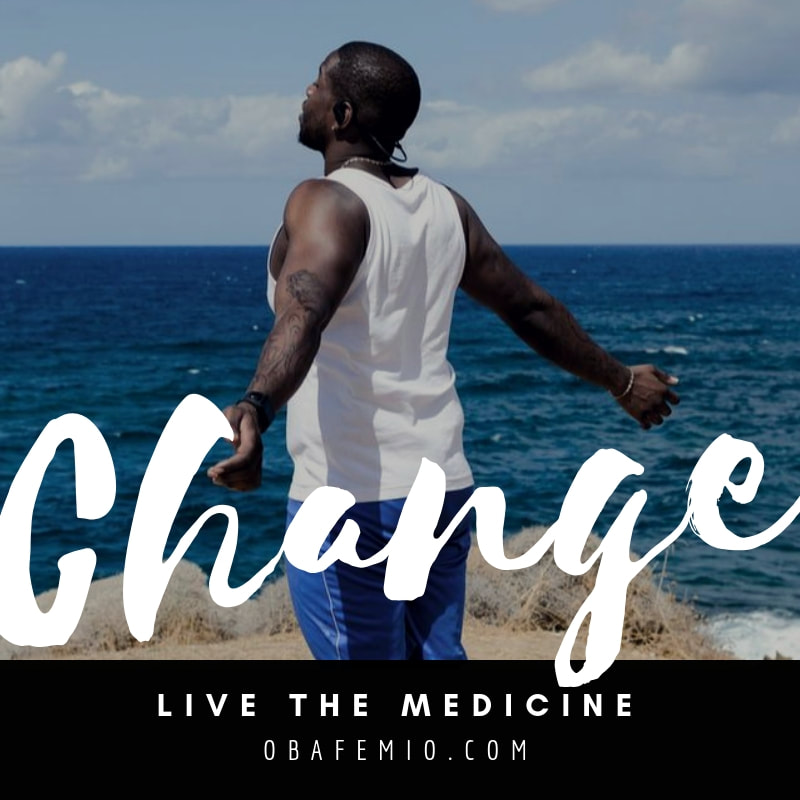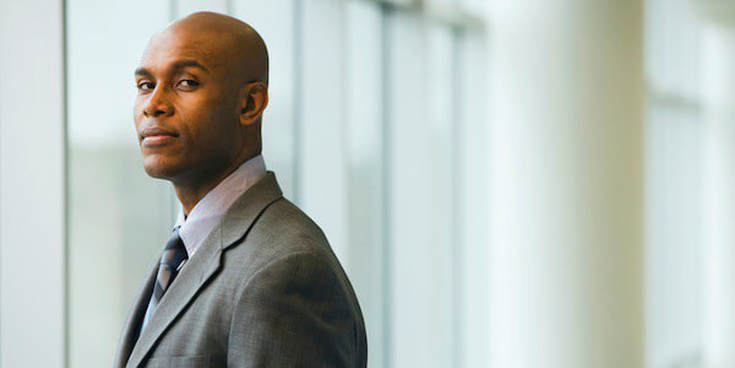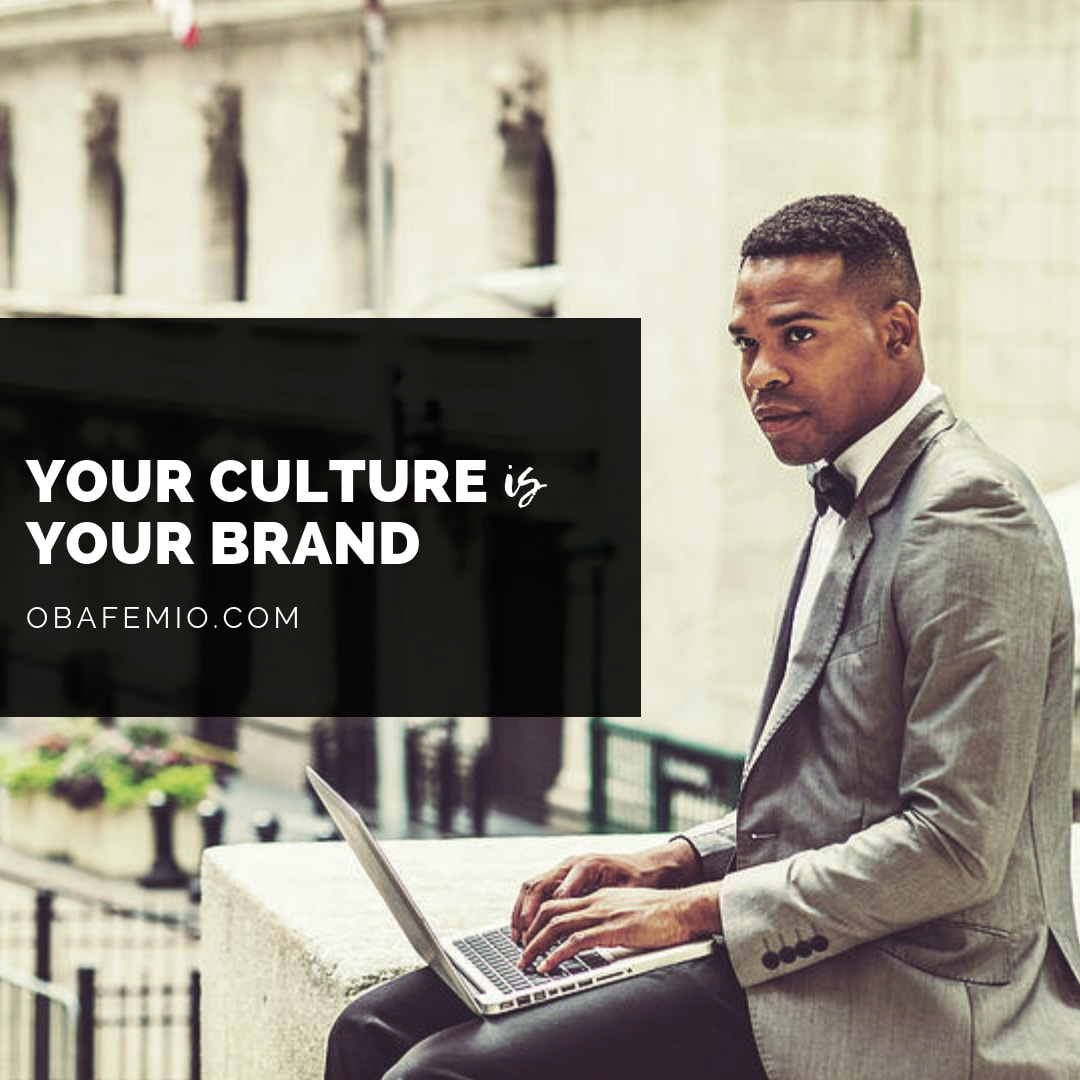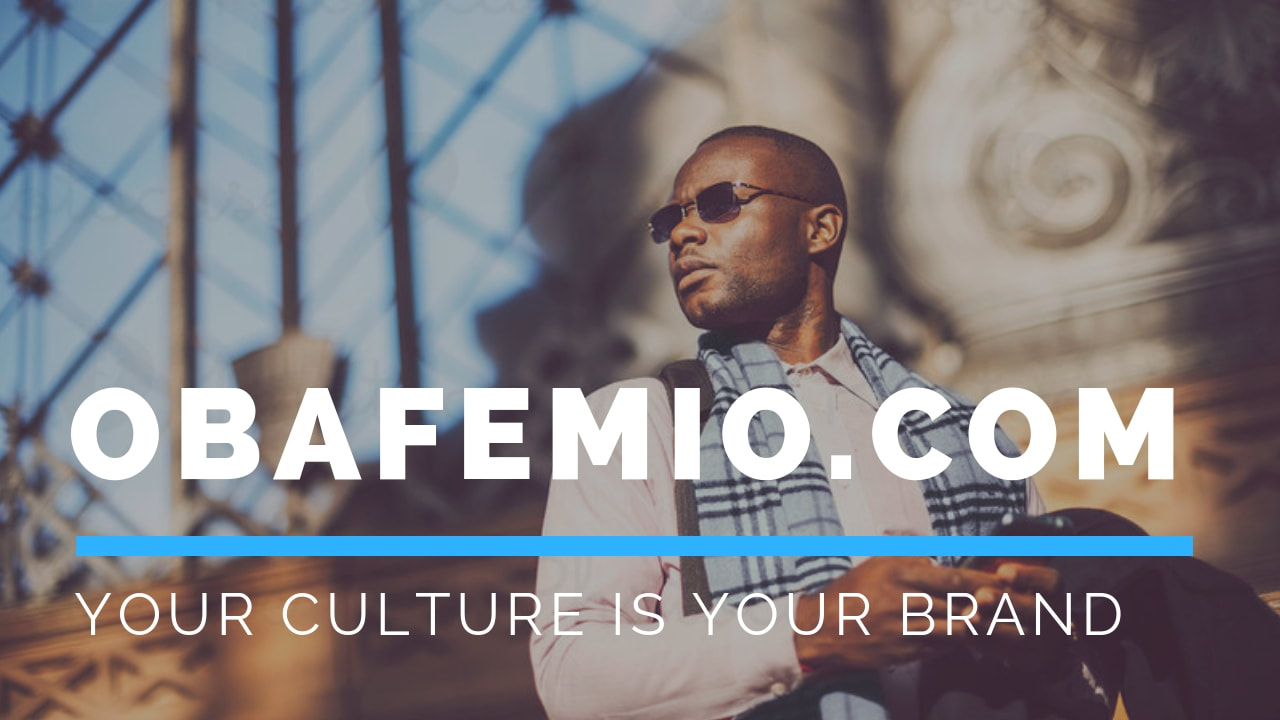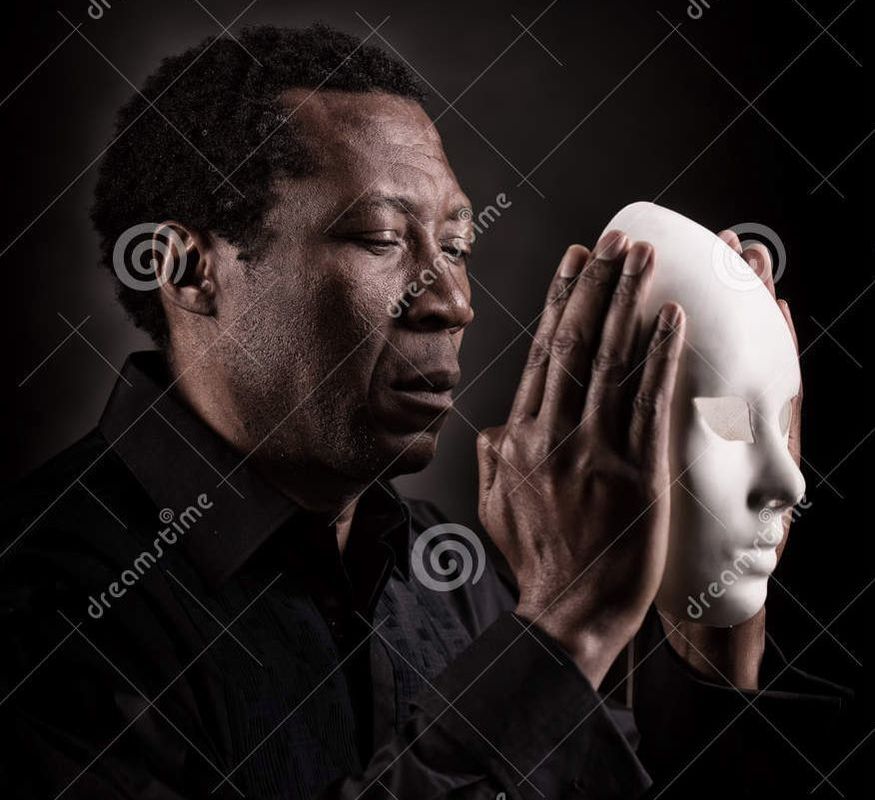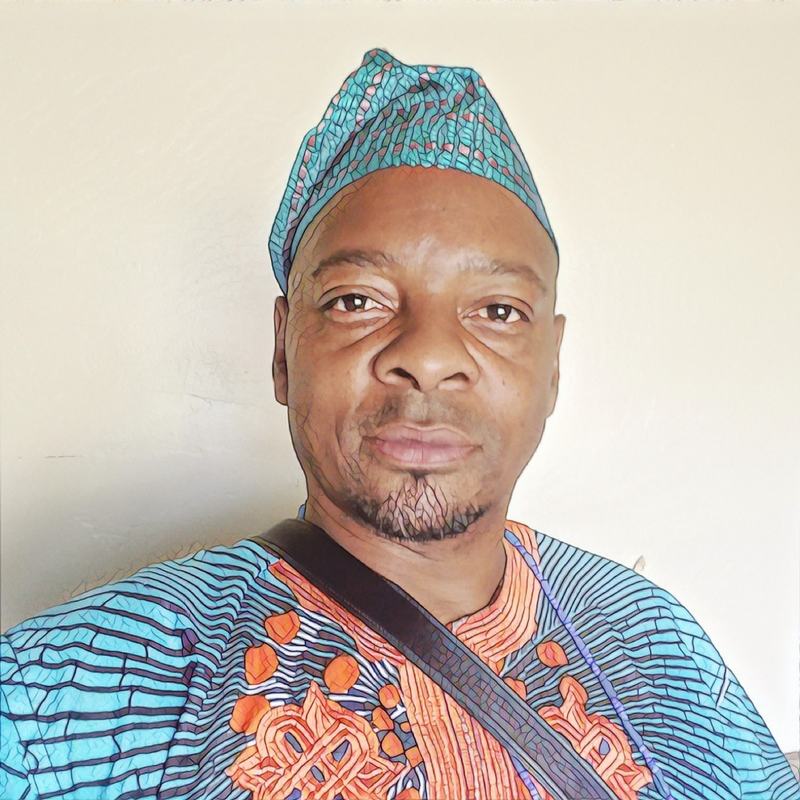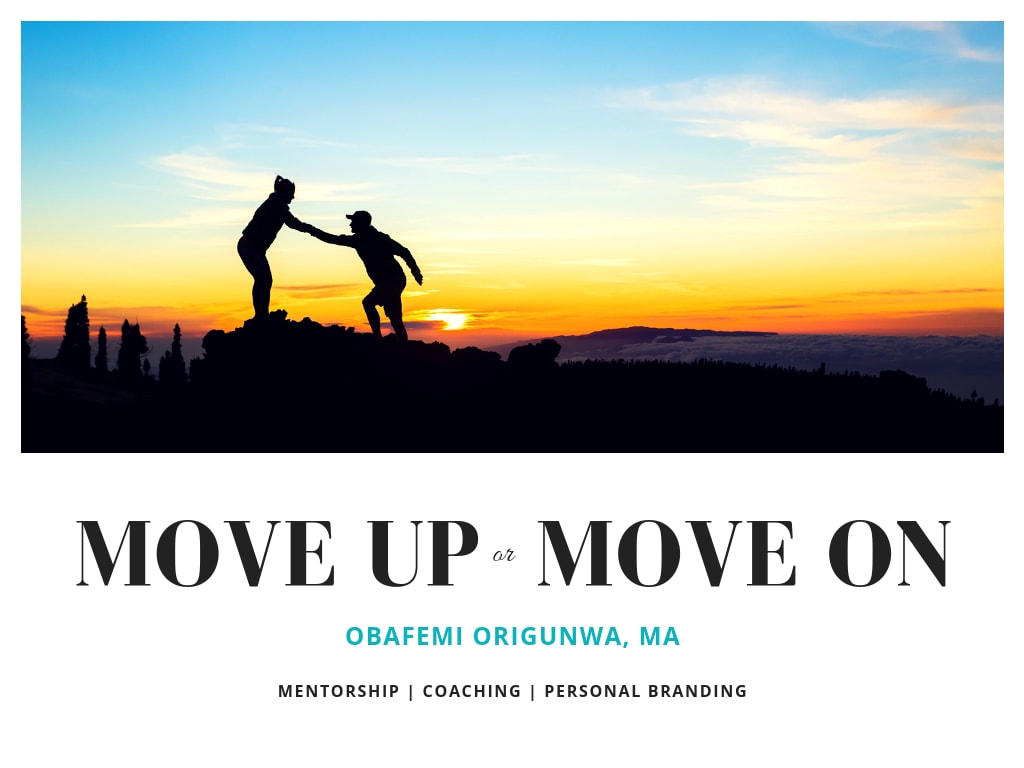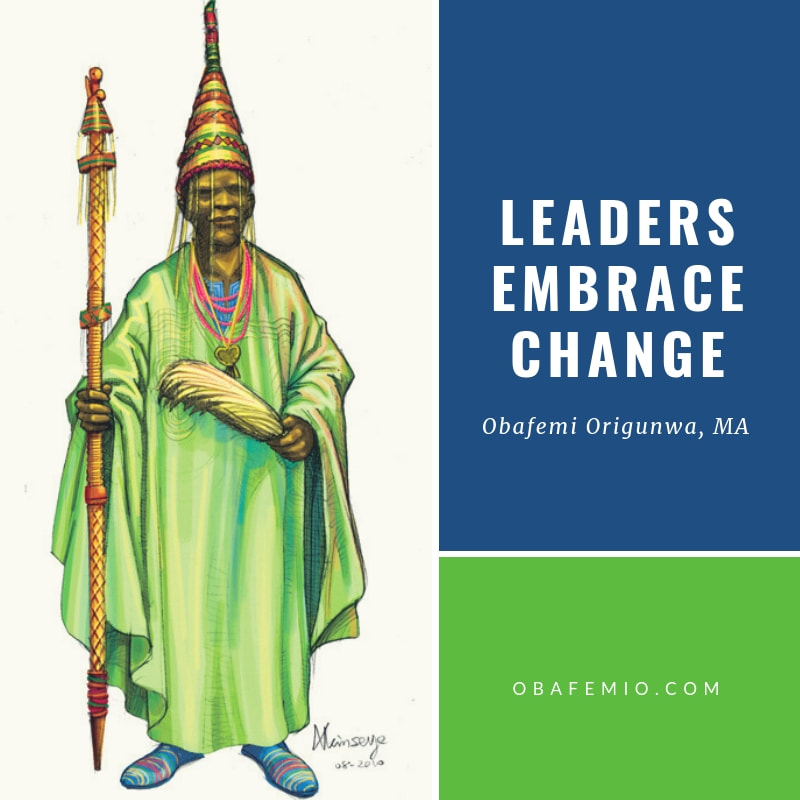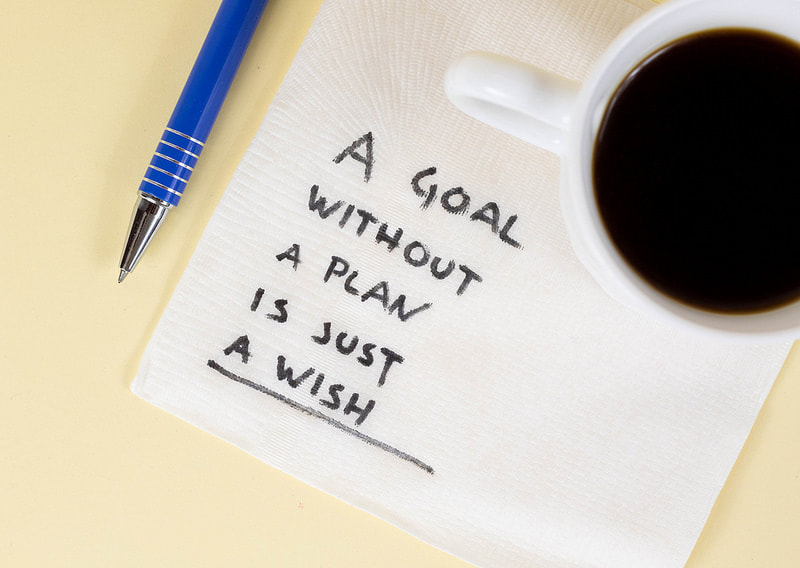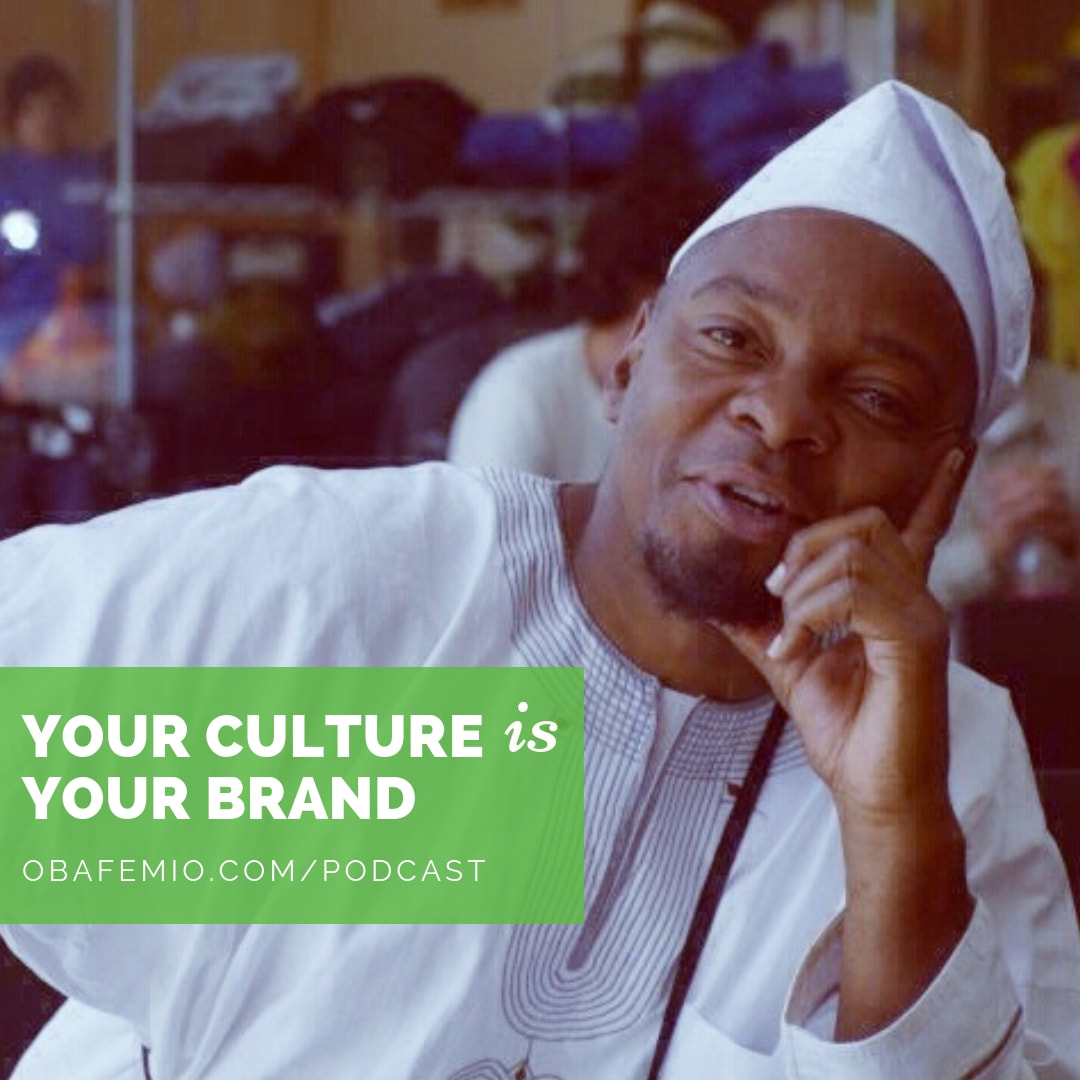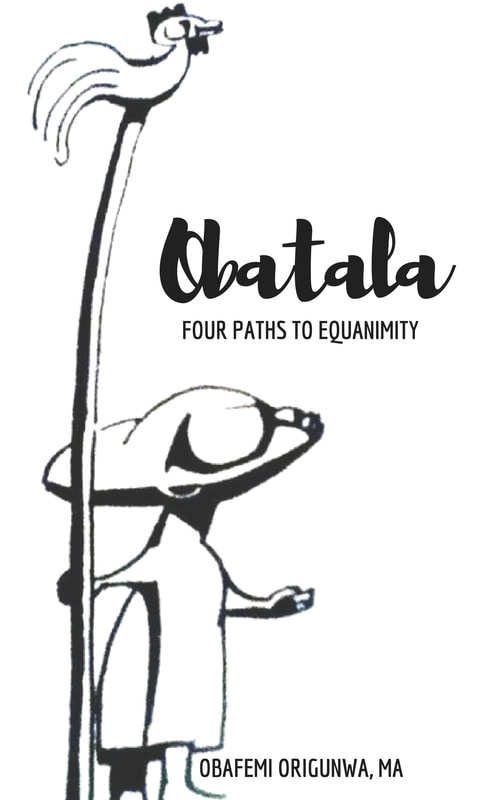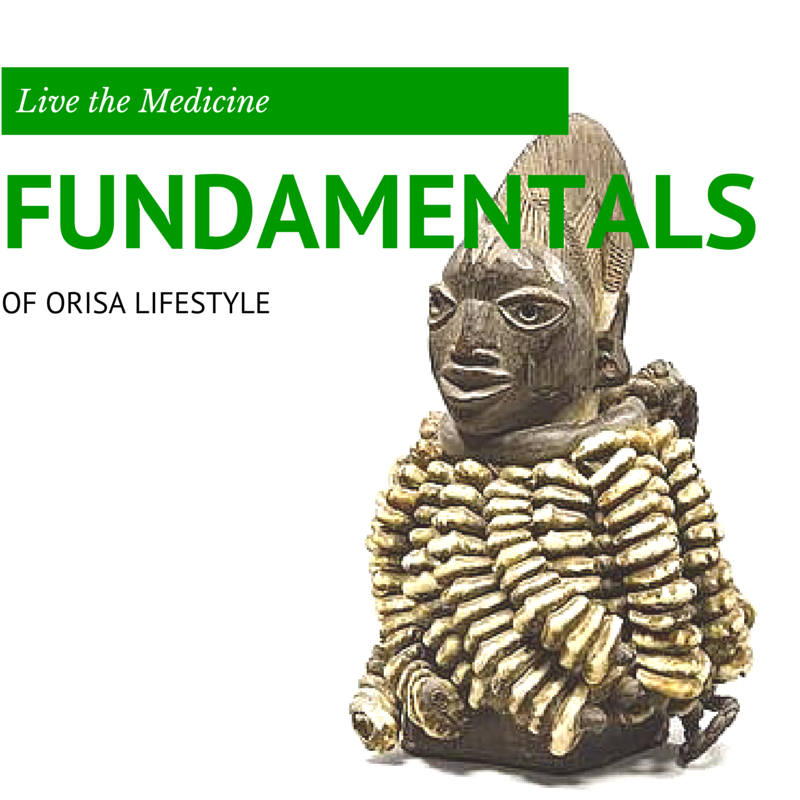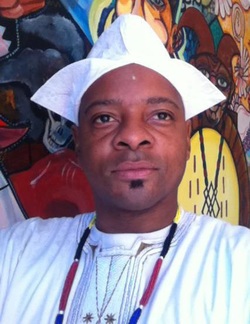|
FIRST THINGS FIRST
We tend to minimize the importance of personality. When we say that somebody has a good personality, we usually mean they're likable. But there's a lot more to it than that. For example, when a leader is looking to expand his team, his prime objectives are to establish three things:
Your personality has a significant impact on all three of these objectives. because of that fact, leaders make use of a variety of formal and informal personality assessments in order to observe how you handle relevant activities, such as solving problems, managing others, working in teams, complying with rules and regulations, coping with stress and more. So, the first thing you need to understand is that your personality is directly tied to performance, not popularity. PERSONALITY INDICATORS There are many elements of personality, and each one offers its own unique insight into how you can make a more meaningful contribution to your life and the lives of those you're destined to serve. Focus, self-motivation, diligence and honesty are not only virtues, but also personality traits. Some personality traits are natural. Others must be practiced. Either way, your personality traits have considerable impact on how you show up in the world and what you're best suited to do. I remember when I was learning to play the trumpet. Because I loved the instrument dearly, I was overjoyed to meet an Afro Cuban musician who had played with the National Symphony. Soon after we met, I asked him to show me some drills for trumpet mastery. He shared three exercises with me right away. When I happened to run into him a couple of weeks later, he asked how I was doing with the drills he had given me. As soon as I told him I had not done them for a few days, he flatly told me, "The trumpet is a very demanding lover. She will not accept inconsistency. You'll never be a serious trumpet player if you cannot master those drills. Maybe you'll be good at something else... But not the trumpet." The trumpet suited my taste in music, but not my personality type. That is, I loved the sound, but I didn't have the methodical discipline to master the trumpet. Here, it's worth repeating that the most important aspect of personality is the way it is directly tied to performance. In order for you to achieve and sustain excellence, your personality must be closely aligned with the tasks most strongly associated with your craft. Many years after my trumpet-playing, I was introduced to personality assessment instruments, commonly referred to as "personality tests." I found the Enneagram very interesting but Myers-Briggs has always been my favorite. The basis of Myers-Briggs is that every individual has a primary mode of operation within four categories:
Within each of these categories, we "prefer" to be either:
My personality type is ENFJ, who are described as "natural-born leaders, full of passion and charisma. Forming around two percent of the population, they are oftentimes our politicians, our coaches and our teachers, reaching out and inspiring others to achieve and to do good in the world. With a natural confidence that begets influence, ENFJs take a great deal of pride and joy in guiding others to work together to improve themselves and their community..." [2] One thing that I enjoy about personality assessment is that it is not geared towards abstract navel-gazing. When you really explore the details of your personality type, you will gain valuable insights into optimal fields of study, professional careers, strengths and weaknesses. Most importantly, personality assessments tend to be outcome driven. They provide actionable behaviors and habits related to performance. For example, as subordinates, ENFJ's tend to be quick learners and excellent multitaskers. People with the ENFJ personality type are able to take on multiple responsibilities with competence and good cheer. As colleagues, ENFJs’ desire to assist and cooperate is even more evident as they draw their coworkers into teams where everyone can feel comfortable expressing their opinions and suggestions, working together to develop win-win situations that get the job done. While perfectly capable as subordinates and colleagues, ENFJs’ true calling, where their capacity for insightful and inspiring communication and sensitivity to the needs of others really shows, is in managing teams. As managers, ENFJs combine their skill in recognizing individual motivations with their natural charisma to not only push their teams and projects forward, but to make their teams want to push forward. [3] WHO ARE YOU... REALLY? Identity is complex and multifaceted. Ancestry, culture, nationality, gender and class are just a few of the factors that determine who you are. In the Yoruba tradition of West Africa, there are elaborate rituals and ceremonies that help people answer the eternal question, Who am I? As a result, more and more people are gravitating towards knowing more about the extensive pantheon of Orisa, as well as the almost inexhaustible information found in the sacred text, called the Holy Odu. The prevailing idea is that you will be more successful, happier and more comfortable once you have found yourself. And while I wholeheartedly accept that notion, I am also certain that knowing who you are is only the beginning. Long term success also requires that you know how to show up; how to express yourself. That is, you must know how to demonstrate your natural gifts and talents in ways that complement your environment and get the job done. Getting the job done requires a balanced assessment of the weaknesses, as well as the strengths of your personality type. Let's take another look at ENFJ. ENFJ Weaknesses:
ENFJ Strengths:
CONCLUSION If there is one thing that makes the difference between average and exceptional performance, it is self awareness. Too often, people limit their self assessment to their likes and dislikes. Authentic self awareness, however, demands that you discover why you like certain activities and dislike others. It means learning to live with yourself - even those aspects of your personality that you would rather not acknowledge. Even more valuable than awareness is the way in which it enables a clear understanding of how to apply your personality traits strategically so that you can create specific outcomes. Without the ability to manifest your vision of life, according to your personality traits, you will remain incomplete and unfulfilled. There can be no maturity without full self expression. Ultimately, as you reconcile the contradictions of your personality in the full expression of your natural gifts and talents, you will achieve greater levels of success personally and professionally. Check out my podcast episode on personality: Your Culture IS Your Brand Obafemi Origunwa, MA | ObafemiO.com #PersonalPriesthood #LiveTheMedicine Ifa has words of wisdom for the stubborn person, who is presented with the best way forward but chooses to cleave her own path. There is a delicate balance between independence and rigidity. I was once with a woman who tried to argue with me over the way Orisa Lifestyle is practiced in Nigeria, compared to Cuba. The only problem was that she had never been to Nigeria. No matter how many creative ways I tried to explain to her the gaps between her perception and the reality on the ground, she insisted on being an authority on the matter. Somehow, her opinion was more valid than what I had seen and experienced in both countries.
This is a small example, but it has very serious implications. As devotees and seekers, we practice Orisa Lifestyle in order to grow and become better. If nothing else, spiritual development is a learning process. If we are sincere about our desire to have spiritual integrity, it is obligatory that we constantly seek the edges of our understanding. All the really good stuff is happening outside of our comfort zones. Most people get distracted by exploring their EXTERNAL comfort zones: The rituals, ceremonies, beads, pots, charms and icons offer an endless array of new experiences. Unfortunately, NONE of those activities will create the kind of INTERNAL growth you truly seek. you don’t have to look far to find thin-skinned, hyper sensitive orisa devotees who have lots of paraphernalia but almost zero spiritual maturity. For serious aspirant, who is committed to real spiritual development and empowerment, you will benefit greatly from subjecting yourself to rigorous introspection and reflection. Ask yourself, Why is it so important to be right? What does it mean when you prove somebody else wrong? Recall a time when you were so stubborn that you rejected good advise just so that you could be right. Maybe it was at work. It may have been in your marriage or relationship. What were your strongest feelings? How did it turn out? What did you learn from the experience? Let’s consider what Ifa says about being stubborn: The dog that we taught wisdom but who refused to learn The dog will become the dog of Elegbara The ram that we taught wisdom that who refuses to accept The ram shall became the ram of Imole The human beings who we taught wisdom wisdom and understanding but who refuses to accept He shall live with the regret for the rest of his life Ifa’s message for Orunmila When going to start swimming inside the ocean He was advised to offer ebo He complied Gently Orunmila, The Akoko of the high sea He who trained as a swimmer inside the ocean He who provides for ones as an Oba
Orunmila is well-respected for his wisdom. The divinities, kings and human beings are hold him in high esteem because he facilitates growth, comfort and stability everywhere he goes. In the verse above, Orunmila was invited to the palace of Olokun on a spiritual mission. Orunmila did not rely upon his own devices to accomplish the task. Instead, he went to take advice from another awo. He was advised to sacrifice and learn to swim before embarking on the journey. Orunmila complied. Consequently, he was successful. Orunmila is THE babalawo! But half of the verses of Ifa are about him going to his students for assistance and guidance. Can you imagine your elders and teachers coming to you for direction? It is highly unlikely. Most people in authority are too defensive to do such a thing. But it’s not only authority figures. Defensiveness is very common; just about everyone is defensive about something or another. But for some people, defensiveness is a more dominant personality trait than others. It can manifest itself in different ways, but all defensiveness involves feeling challenged or threatened by a perceived threat to the ego. We tend to think we’re going lose something by taking somebody else’s advice. When you’re being stubborn, you will cling to your decision regardless of the consequences. In this regard, stubbornness reveals your attachment to your decision, which will eventually form a tendency to resist change in general. The result is always detrimental in the end. “The dog that we taught wisdom but who refused to learn. The dog will become the dog of Elegbara. The ram that we taught wisdom that who refuses to accept. The ram shall became the ram of Imole. The human beings who we taught wisdom wisdom and understanding but who refuses to accept. He shall live with the regret for the rest of his life...” OVERCOMING STUBBORNNESS When I met Amalia, she was determined to get her ileke and then be initiated. At the time, she was in a “situationship”, had two young children and worked as a senior administrator in a large corporation here in the SF Bay Area. Amalia had read lots of books about Orisa Lifestyle, knew people in the tradition and seemed confident that the path that she had chosen for herself was ideal. But whenever I asked her why she needed ileke and what she was going to do after being initiated, Amalia would get defensive to the point that I eventually told her, “Something’s wrong with this picture. I’ve worked with you for just a few months but every time I ask you to get even a little specific about your spiritual plan, you get defensive. Sometimes, you get downright rude. What is THAT about?” Gradually, I worked with Amalia to get closer to the root of her defensiveness. She came to the realization that she was approaching Orisa Lifestyle very similar to the way that she had approached her education and even the formation of her family. That is, she went to college and earned a degree just because that was what she thought she needed to do in order to be “legit.” Beyond the diploma, Amalia had no real concrete plans for what she would actually DO. It became a habit for her. She bought a house, got herself a man and had children without ever getting clear about how those experiences would enable her to exercise her natural gifts and talents. As a result, all of the emotional challenges associated with her achievements just seemed like burdens to her. Just under the surface of her pursuit of beads, pots and titles, Amalia was afraid that her determination to get ileke and then become initiated would become just another chapter in the same book of scratching off duties on her To Do List. That’s what was driving her defensiveness. HOW TO GO FROM BEING DEFENSIVE TO SECURE The best way to reduce all kinds of defensiveness in the long term is through cultivating a strong sense of self-worth. The more you value yourself, the less you will feel an instinctual “need” to protect your ego. The key word here is VALUE. Experiences create values. More importantly, as it pertains to your sense of self-worth, it is your ability to make a meaningful contribution to the people who matter most that creates precisely the kinds of experiences that will increase your value. Amalia was overly focused on what psychologists call the external locus of control. A person with an external locus of control attributes all success and blames all failure on EXTERNAL forces (e.g., I can only start a business if I have an MBA. I can only practice Orisa Lifestyle if I am initiated. The only evidence of my spiritual development is wearing beads and having a pot in my house). The first step in overcoming defensiveness is to focus on the internal locus of control. A person with an internal locus of control believes that she can influence events and their outcomes. Ultimately, the ONLY events you can control are internal; how you think, feel and act. Here are three steps to being less defensive and more secure:
CONCLUSION Stubbornness and defensiveness are very detrimental personality traits to have. Yet and still, they are incredibly common. In fact, everyone practices them at some point and to a certain degree. In the end, however, you never want to be that individual who everyone pushes away because you are always disagreeable. I am available to work with you to increase your awareness and help you to cultivate a spiritual practice that will drastically reduce your stubbornness and defensiveness. LEARN MORE. #OrisaLifestyle, #LivetheMedicine Beyond great skills, great tools, and great credentials, there's but one secret to competitive advantage for African American professionals: Culture!
In my podcast and in other blog posts, I have alluded to the fact that African American culture is an operating system that organizes and perpetuates our shared values. Beyond that fact, it's important to also emphasize the reality that our culture is not neutral. It is biased in favor of Black people. Everything in the culture, from beauty standards to work ethic to family structures, is designed to support Black excellence. For all of you upwardly mobile African American professionals who are committed to changing your lives from ordinary to amazing, you must turn to the culture for competitive advantage. This reaches far beyond climbing the corporate ladder. Some key benefits of leveraging the culture include: unleashing your full potential; working to thrive, not just survive; being part of a real community; making a positive impact; living free of toxins and stress; being a global citizen; and living in alignment with your Ancestral Promise. HOW DOES THE CULTURE CREATE COMPETITIVE ADVANTAGE? African American professionals have to meet five essential needs in order to achieve competitive advantage. To the extent that you - the African American professionals - can meet those needs for yourselves, you will unleash greater degrees of creative potential. In this way, strong cultural affiliation inspires intrinsically-motivated, passionate, loyal and dedicated Black professionals.
Culture has the power to inspire African American professionals to move themselves, to move mountains, and to support each other in a way that is truly unique. And if you couple it with cutting edge professionalism, supported by great technology, culture creates absolutely the most powerful competitive advantage for African Americans. Culture & Competitive Advantage Your ability to leverage the culture can create competitive advantage primarily because the culture can be imitated, but it cannot be duplicated. Unlike a product, a price point, or technological system, culture is something that comes out of the collective consciousness of the people. If you haven't lived it, you won't really know it form the inside out. For African American professionals who actively leverage the culture, they experience the ways in which it provides an environment that supports stronger networking, relationship-building, and loyalty. Not only that, when we're all on the same page, we also enjoy greater productivity and an increased sense of ownership. In conclusion, here's a three-part, intentional process for organizing your professional development around strong cultural values:
YOU'RE A BLACK PROFESSIONAL
If you haven't figured this out by now, allow me to hip you to a little secret; your culture is the special sauce that helps to distinguish you from everybody else in your field and profession. Of course, you have to know your job, be prompt and well-groomed. But those are just table stakes - that is, the bare minimum to get you in the door. After that, it's all about managing relationships with your clients, your coworkers and your managers. Relationships are 100% cultural. But what exactly is culture? What does it have to do with high performance? And how do you use culture to take yourself to the next level? What is Culture? Your culture is all about shared experiences; things like, how you were raised, how you praised the Lord and resolved conflict. Because experiences create values, culture is the code of conduct that perpetuates shared values, one generation after another. So, your culture is your values system. If you've been Black for more than fifteen minutes, you know that your skin color, along with your features, makes you instantly recognizable to others. They make you stand out in a crowd. Beyond your looks, however, it is your culture (i.e., your values system) that defines the quality of your relationships. The people you serve will associate your performance with who you are (i.e., your personal identity), and that identity is always inseparable from your culture. You're never going to just be an ordinary engineer, for example. You'll always be seen as the Black engineer. Don't try to outrun that reality. It's not a problem unless you make it one. As the Black professional, it's more important to know that the way you decide to express your unique character is the bond that forges a strong connection between you and your clients, your coworkers and your supervisors. How you show up builds loyalty and determines how all these people will perceive your contribution to any project or initiative. It is important that you be consistent and authentic at all times. Know Who You Are By now, you're probably grappling with some of the tangible elements of your culture and you may be struggling to figure out what any of this has to do with your professional performance. Before you go too far down that path, however, you need to know who you are as a Black professional. Here are a few key elements to take into consideration:
These elements are what define your personal brand as a Black professional, and before you can start really building your brand identity, you must have a clear understanding of each one. If you’re having trouble figuring out who you are exactly, don’t fret. In my experience as a coach and a mentor, most of my students and protégés struggle with this part of the professional development process. Usually, however, all people need is a little brainstorm session to help create clarity on brand identity and how it derives from one's culture. Ask yourself:
Once you’ve gotten clear about who you are as a Black professional, it’s time to build the identity that will bring your personal brand to life and demonstrate who you are to the people who matter most: your clients, coworkers and managers. CULTURE IS YOUR FOUNDATION Your culture - your values system - is the foundation for how your performance is perceived. I know this is probably counterintuitive for most people. But remember, relationships are 100% cultural. If you're able to openly embrace them as natural assets, personal values like communication style, hustle, and even fashion sense will all conspire to create an environment that is conducive your strengths. The more you can play to your strengths, the more likely it is that you will achieve peak performance, which will only increase your confidence. In other words, tapping into your culture means empowering your identity, which is absolutely requisite for building a truly successful profession that accurately represents who you are as a person. Stated simply, it's not necessary to pretend you don't have a culture in order to be respected as a professional. If you do feel like you have to pretend, you cannot really call it success, no matter how much money you make. So, how exactly do you tap into your culture and build a personal brand that will take your professionalism to the next level? Developing Your Personal Brand Before you start building your personal brand, you need to start from your cultural core and lock in the basics of your performance structure. Here are some of the simple steps in developing your personal brand for peak performance:
Building a personal brand is a comprehensive, strategic effort, and every element needs to support your overall message and professional goal. Success in the professional arena depends on much more than drive, effort and ability. Once you have achieved an acceptable level of competence in your field, our ability to LEAD RELATIONSHIPS and create strategic contacts will have a much greater impact than talent and credentials. As you ascend to social and political ladder in any discipline, you will soon discover how important it is to be consistent and authentic. Herein lies the value of culture, especially for the Black professional. Breaking Mental Barriers Surrounding African American Culture, Identity and Peak Performance10/16/2018
Who Taught You The Meaning of African American Culture?
A few years ago, my mentor challenged me to define African American culture. Most of what I came up with was so particular to me and my family that I couldn't call it African American, per se. The only things that I could point to that seemed universally African American were admittedly vague, like speaking Ebonics, making soul food and creating jazz. But that's not culture. Culture is to people what water is to fish. Culture is your way of life, how you cook, clean, raise children, settle disputes, get married, buy a car... it is the collection of experiences that create shared values. Culture is the expression and protection of collective identity. Without culture, we cannot exist. Like the air we breathe and the water we drink, we depend upon the culture for life itself, Despite that fact, African Americans have become completely ignorant of where our culture comes from, how it gets to us and how we're truly supposed to sustain it. No wonder we're suffering from a severe identity crisis! Unintended Consequences of Integration One of the greatest consequences of integration is the mental barrier that prevents African Americans from seeing themselves through their own cultural lens. Stated another way, the overwhelming majority of contemporary African Americans see themselves as failed attempts at being White. In this regard, breaking the mental barriers that hold you back will transform every aspect of your life. More precisely, while there is very real evidence of a glass ceiling for Black people, almost all of us have bumped into glass ceilings that only exist in our minds. The most successful African American advisors and mentors have developed methods to get around those mental barriers. We have discovered the secret to feeling at ease in the mainstream without losing our ethnic and cultural identities. We are not intimidated by other people's race, income, privilege or pedigree. We know the value we bring to every circumstance and situation. Most importantly, understand the relationship between identity and peak performance. Glass ceilings most certainly limit your ability to thrive. But, they also function like a mental thermostat that constantly keeps you within your comfort zone. Take into consideration some of the greatest moments of African American achievement in the past hundred years. All of our peak performers had to reset their mental thermostats and expand their comfort zones. By their actions, they also changed the perception of what was possible. Your willingness to push yourself beyond your mental barriers will have a direct impact on the results you achieve. One Degree Difference Think about a person who builds a campfire and hangs a pot over the fire. The fire is burning at 211 degrees, but it's not boiling. Think what happens when you go from 211 degrees to 212. Now you have steam and with steam you can move a train. A whole new world opens up at 212 degrees that is unavailable at 211. Think of how many people came before you and got to 211 degrees and never knew how close they were! What's Your Personal Brand? Starbucks doesn't sell coffee; they're in the business of creating an experience. Similarly, Nike does not sell athletic apparel; they are in the business of empowering the underdog. As the global economy shifts towards globalization - and automation - what you have historically known as products, services and job titles have now been reduced to mere commodities. Consequently, it's essential that you can distinguish what you do from a simple commodity that can be easily replaced with another. If what you offer is the same as everyone else, you'll be undervalued, underpaid and underrated. One way to discover what value to add is by clarifying your identity. Who are you, really? No matter what industry you're in, and no matter what your title is, what you really sell is you, because the product is you! What separates you from the competition is you, and the experience you provide the people you serve. Once you are clear on your identity, you are ready to think about how to differentiate yourself. This is the basis of your personal brand. Not until you have clarified your identity can you determine the what you want to communicate and make sure what you present remains consistent with your culture, core values and sense of integrity. Until you understand what makes you unique, it is difficult to know who you are in the marketplace and create value for what you do. Black Identity Crisis: How Mentorship Can Help You Overcome the Pitfalls of Upward Mobility10/15/2018
The Price of Upward Mobility
Despite our undeniable success, many upwardly mobile African Americans are in excruciating pain. I'm talking about Black people who have played by the rules; attended the best universities, climbed the corporate ladder and been responsible parents. For all intents and purposes, we have so much to celebrate. Still, something is seriously WRONG. Why are middle class Blacks angry? Of course, we must take note of the seemingly endless complications of "doing ANYTHING while Black", police brutality, and media assassination. As serious as these issues are, I think these are really symptoms that can be traced to a single problem: BLACK IDENTITY CRISIS. We are a group of racial misfits who can't agree on something as innocuous as a racial designation... When you evaluate middle class Black values, we are clearly unable to strike a balance between our frequent denouncements of whites and their desire to be white (i.e., assimilate). If you doubt the veracity of my claim, go and ask 20 African Americans to define our culture - not in terms of food, music and art - but in terms of our values, customs and traditions. You will quickly see the fact that most Americans of African descent have become estranged from their heritage to the point that they cannot easily recall what it means to be Black. [1] “Integration in the past has been understood as assimilation into a white society on white terms; a condition that implies the superiority of the white society. School integration meant sending Black children to attend White schools, almost never the other way around. Today, a growing number of African Americans seek a goal more complex than integration into a white society; upwardly mobil Blacks increasingly aspire to the creation of a pluralist society in which African Americans may retain their identities as a distinct ethnic group… [2] The African Problem Beyond integration, another significant reason why Blacks have struggled with identity is our tenuous relationship with Africa. At the height of the Civil Rights Movement, we didn’t want anybody telling us anything about Africa, much less calling us Africans. In hating Africa and in hating the Africans, we ended up hating ourselves, without even realizing it. Because you can’t hate the roots of a tree and not hate the tree. You can’t hate your origin and not end up hating yourself. You can’t hate Africa and not hate yourself.” [3] Nonetheless. the term African is a term that connects African Americans to a global community of people of African descent that are connected by a common history and a common experience. Whether you are Jamaican, Guyanese, Trinidadian, Ghanaian, Nigerian, or Kenyan you have felt the sting of British colonialism. Haitians, Martiniquans, Senegalese, and Guineans have all felt the sting of French colonialism. Brazilians, Angolans, and Mozambicans have all suffered through Portuguese colonialism. And just about every group of African people in the world has experienced American racism in one form or another. [4] The African problem is one that America has always grappled with, as a nation. The claim that the Founders sought to create a multiracial democracy that welcomed immigrants from all over the world might make inspiring Fourth of July oratory, but it isn’t true. The first U.S. naturalization act of 1790 limited citizenship to immigrants who were “free white persons,” excluding Africans, Asians and others. America’s white only-naturalization policy lasted until after World War II... Some American nativists argued that of the three supposed strains of the white “race,” only “Nordic” immigrants were compatible with the existing American community. Today, there are FIVE official categories used by the U.S. Census: African-Americans, non-Hispanic whites, Latinos (or Hispanics), native Americans and Asian and Pacific Islanders. These categories were settled upon by the federal government in the 1970s, and all except African-American, with its historical basis in America’s white supremacist caste system, are arbitrary to the point of absurdity. For example, Arab-Americans and Norwegian-Americans are lumped together as “non-Hispanic whites” while Americans of Indian and Japanese descent find themselves part of an “Asian and Pacific Islander” community. What is more, according to the Census, Hispanics may be of any race. [5] Internalized White Supremacism When Black people strongly identify with their cultural heritage, there is an increase in their self-esteem, self-efficacy, and motivation to improve. This phenomenon is important to the academic and professional development of Black middle professionals. Black professionals in every industry are often challenged with adjustment difficulties that are not experienced by their White counterparts (Gardner, Barrett, & Pearson, 2014). According to Owens, Lacey, Rawls, and Holbert-Quince (2010), Black students pursuing postsecondary education struggle with the contradiction of the college environment and their cultures. Black students also face a lack of social support and discomfort with the social climate of the school. These students lack a sense of belonging and experience alienation, resistance, and a different dominant culture (Gardner et al., 2014; Heaven, 2015; Owens et al., 2010; Rush, 2012). The experience of navigating back and forth between the dominant culture and one’s own culture on a daily basis, or living a bicultural existence, can be stressful (Gardner et al., 2014). Along with adjustment issues, upwardly mobile Blacks often feel the need for support and institutional connectedness (Owens et al., 2010). Upwardly mobile Blacks indicate discrimination, negative racial climate, marginalization, and a lack of Black peers and faculty as barriers while in doctoral programs at predominantly White institutions (PWIs; Henfield et al., 2011). Developing a positive self-identity and self-awareness positively contributes to the Black professionals'’ progress and self efficacy (Hurd et al., 2012). Further, being exposed to any negative race-related interactions increases the negative feelings of Blacks, leading them to struggle with their abilities and perceived limitations of their counterparts (Gullan, Hoffman, & Leff, 2011). Lacking a solid foundation of self-identity leaves them susceptible to feeling more unsure of themselves, isolated, and disengaged. Spending vast amounts of time processing and enduring others’ actions, including microaggressions, and then trying to modify their behavior to prove they are equal, can impair the upwardly mobile Black professional’s self-confidence, hence, diminishing their will to continue their plight for success (Harper, 2007; Hurd et al., 2012). Solórzano, Ceja, and Yosso (2000) defined microaggressions as subtle insults directed towards others, particularly minorities of any sort, that may be verbal or nonverbal. Though subtle and often uninvestigated, Solórzano et al. (2000) purported that microaggressions are pervasive forms of racism that verify Black inferiority. For example, if a White female clutches her purse as a Black male passes by, it may silently insinuate that Black men are criminals. Whether intentional or not, microaggressions communicate negative messages from those harboring negative biases. Sue (2010) contended that minorities frequently experience microaggressions in their day-to-day interactions with others and often feel like untrustworthy, second-class citizens. According to Arroyo and Zigler (1995), in order for upwardly mobile Blacks to become successful, they feel forced to dissociate themselves from their culture of origin and adopt behavior and attitudes of the mainstream culture resulting in their increased feelings of guilt, depression, and identity confusion. The Power of African American Cultural Identity Strong self-identification is associated with determination and academic success (Cokley et al., 2012). Hurd et al. (2012) stated, researchers have found an association between higher racial centrality and more positive performance among African-Americans... indicating that seeing race as a central part of one’s identity may contribute positively to one’s academic performance” (p. 1197). [6] Henfield et al. (2011) identified four themes that Black doctoral-level students in counselor education programs expressed that helped them overcome difficulties in their program. Black doctoral-level students at predominately White institutions (PWIs) in counselor education programs perceived that the following elements assisted them with their professional development:
Mentorship, Identity and Upward Mobility Through their investigation of Black administrators at PWIs, Gardner et al. (2014) revealed mentoring as an effective method to both facilitate retention of Black students and promote professional growth and development of Black professionals (Haizlip, 2012). Peer and faculty mentoring has positive influences on the experiences of doctoral students in counselor education programs, specifically Black students (Hinkle, Iarussi, Schermer, & Yensel, 2014) According to Henfield et al. (2011), after decades of activism, social policy, and social justice, nearly half of the Black students in doctoral programs at PWIs surveyed continue to report experiencing feelings of isolation, marginalization, and lack of a substantial racial peer group during their graduate education. Mentoring allows upwardly mobile Blacks to conceptualize their possible success. It may also provide an avenue to help alleviate isolation for both the student and professional. An illustration is in the case of Constance, a Black doctoral-level student in a counselor education program presented by Henfield et al. (2011). Constance shared her belief with the following words: “I believe that for a minority student, involvement with persons from similar backgrounds aid[s] in the process of getting through the everyday bureaucracies associated with being a minority at a predominantly White institution” (p. 236). Learn more about mentorship opportunities for upwardly mobile African Americans: So, as I return to my consultant roots, I'm revisiting the best practices in mentoring, coaching and counseling. It's great because this time around, I'm noticing some things that weren't so clear to me fifteen years ago.
For example, to be a great consultant, you've got to be a master of conversation. I don't mean small talk. When I say conversation, I am talking about demonstrating leadership through communication. When I would sit down with smart, influential executives, my job was not to make them happy, but to help them grow. I had to tell them what changes needed to be made in themselves and in their organizations in order to improve outcomes. It was not just about shoveling data. They already had the best data. Instead, it was all about conversation. So, how does the young Black consultant in African robes, with the name nobody can pronounce, advise the regional manager on how to run his business? One thing I always drew upon was conviction. I believe in what I say. That is, I believe that what I am advising you will be to your benefit. Even if I need to refer you to another specialist, I will tell you that without hesitation. It's because of my conviction. When I speak, I do so from experience, which is my my mantra is "LIVE THE MEDICINE". I'm excited about returning to the consultancy model, this time leveraging my own books, courses and learning materials in an effort to serve my tribe at a deeper level than ever before! Learn more: ObafemiO.com My mother tried to warn me... "Son, the most dangerous and feared person in the world is a well-spoken Black man." She was absolutely right. I'll never forget the time, when I was in graduate school. It was an introductory counseling class, taught by a liberal white man. After listening to him repeatedly make blanket statements and generalizations about the human experience, I started to raise questions and engage in conversations that openly, but respectfully challenged his assumptions.
One day, he mentioned something about overcoming cultural superstition in mental health. Naturally, I pointed out the fact that what one group calls science is superstition to another. A Canadian student chimed in, "What wold you say to a farmer in Ethiopia, whose crops are failing due to drought but refuses to leave the place because he BELIEVES that it has something to do with the gods or his ancestors?" He and the professor both looked at me with absolute certainty that I would agree with their position... I did not! I responded, "Ethiopians are among the oldest people on the planet, with an ancient civilization. I would encourage him to continue with his rituals - which have evidently worked for tens of thousands of years. But I would also encourage him to investigate what has happened more recently to now interrupt the success his people have had for so many generations... The problem may not be spiritual, or psychological at all. It might be colonial! He might need to keep his goods and keep his land, but get rid of the Europeans." They promptly changed the subject. Later on, however, I experienced what I call an academic court marshall, wherein this same professor brought me before the department chair, the graduate coordinator and my advisor. The professor started off with his complaint about me: "He can't be taught! He thinks he has an answer for everything... I haven't heard ideas articulated like that since Frantz Fanon." I looked at my advisor, who had wisely instructed me to allow him to do all the talking. Once the ordeal was done, my advisor did told me, "Don't worry about it. To be honest, it's not your fault. You heard what he said, right? Reading about it isn't the same as coming face to face with it. As a department, we weren't ready for a student like you. THAT'S the problem. This won't be the last time you'll have an experience like this so you need to think about what you're going to do next, what you want your next move to be." He was telling me to make up my mind about moving up or moving on. In his groundbreaking book, Rage of a Privileged Class, Ellis Cose goes into exceptional detail about African American professionals who have climbed the corporate ladder, only to discover even greater degrees of discrimination and alienation. "Blacks with a household income of $50,000... on average, appeared to be more alienated than poorer Blacks... But even many who admit the legitimacy of the complaints will be disinclined to care. For the problems of the Black middle class, they will argue, pale in comparison with those of the underclass, the group that truly deserves our attention. " (Page 7-8) Case in point, the FBI's newly-created Black Identity Extremist designation. A 12-page report, prepared by the F.B.I. Domestic Terrorism Analysis Unit in August 2016... announces the existence of the “Black Identity Extremist” movement and deems it a violent threat, asserting that Black activists’ grievances about racialized police violence and inequities in the criminal justice system have spurred retaliatory violence against law enforcement officers. It links incidents of violence by a handful of individual citizens like Michael Johnson, who shot 11 Dallas police officers in July 2016, to “B.I.E. ideology” and predicts that “perceptions of unjust treatment of African-Americans and the perceived unchallenged illegitimate actions of law enforcement will inspire premeditated attacks against law enforcement.” This is fiction. Daryl Johnson, a former Department of Homeland Security intelligence agent, when asked by Foreign Policy in October why the F.B.I. would create the term “B.I.E.,” said, “I have no idea” and “I’m at a loss.” Michael German, a former F.B.I. agent and fellow with the Brennan Center for Justice’s liberty and national security program, said the “Black Identity Extremists” label simply represents an F.B.I. effort to define a movement where none exists. “Basically, it’s Black people who scare them,” he said. [New York Times November 2017] Basically, it’s Black people who scare them. And who are the scariest Black people? Well-spoken Black men. Make no mistake about it; to be a well-spoken Black man in America is to exist in a state of prolonged crisis. Bill George, professor of management practice at the Harvard Business School, has identified 7 Lessons for Leading in Crisis. Leading in a crisis is often the greatest test of leadership. George observes: “In Chinese, the character for the word crisis is made up of two symbols, danger and opportunity. That’s exactly what it represents for you as a leader. Although there is always the danger of failing, guiding people through a major problem is your best opportunity to develop your leadership. That’s why I recommend that young leaders get down on the playing field early in their careers rather than commenting from the press box.” (p. 4)
So, in the words of the Last Poets, Black People, What Y'all Gon' Do? Are you going to move up or move on? Learn more: MENTORSHIP. Evolution is all about change! Your ability to anticipate changes and prepare accordingly is what will distinguish you from the rest. This is why all Yoruba kings of old retained babalawos, whose job it is to predict subtle changes in the environment and prepare the community thrive in the face of uncertainty.
In contemporary business and military organizations alike, it is the same. You cannot name a single corporation, army or nation that does not invest heavily in research that enables them to foretell the future based upon patterns and trends. The message is clear: Leaders embrace change! No matter how powerful they are, wise leaders know that they cannot prevent changes. It is in their ability to accept the inevitability of change that effective leaders are able to guide and influence the way changes manifest. So, why do you resist change? What is it that have convinced you that your denial will somehow stop changes from occurring? What if you could actively predict changes and manage them with minimal anxiety? What if you could meet any change with total confidence? What if you could actually CREATE the changes that would give you competitive advantage? Learn more: ObafemiO.com #OrisaLifestyle #LivetheMedicine Without accountability, the vast majority of people will only do what is necessary to get by. We need somebody to remind us to set goals and stay on task until to job is done. Not only that, the more freedom and access you have, the easier it is for you to slip into "cruise mode" and do the bare minimum.
But you know it's wrong, not morally-speaking, but in terms of your own integrity. At the deepest level of your consciousness, you KNOW that you have not come into the world to be average. You chose a divine mission and agreed to deliver upon the Ancestral Promise that was made many generations ago. Let's consider that Ifa says: It is the particular errand they sent someone that one delivers One must not refuse to do the work someone give you to do One does not wake up in the morning And refuse the errands of ones creator These were Ifa’s declarations to Oyi When going to heaven He sent Ikin to Ado land He sent Ope, the Palm tree, to Igeti the home of his father He said they should go and help him take care of the place. - Holy Odu OturaOgbe The hero's journey represents the quest to discover and master your identity, which is synonymous with destiny. The process of becoming a hero then, is what we call Ijo L'aiye, the journey of life. Each segment of the journey is an invitation to show up more fully and demonstrate your ability to focus relentlessly and perform effortlessly. Can you be unwavering in your purpose? Can you be fearless in your love? Under any and all circumstances, can you stay totally committed to your spiritual identity? More importantly, do you know where to go to get support for your purpose, becoming fearless and increasing your focus? Here are THREE DAIYLY QUESTIONS that will help you stay ready to move up or move on in every aspect of your life:
The ways in which you answer these questions will become the laws of your journey towards moving up or moving on. Every day, you either contribute to or detract from your success. As a mentor and personal consultant, I can offer you nine levels of support for moving up or moving on. Find out more: MENTORSHIP. |
Live the MedicineObafemi Origunwa, MAThought leader, Ifa priest and author of four definitive books, Obafemi Origunwa inspires metamorphosis through living the medicine that will heal your life and heal the lives of the people you're destined to serve. 
Raise Awareness

Internalize Principles

Embody Truth
|

